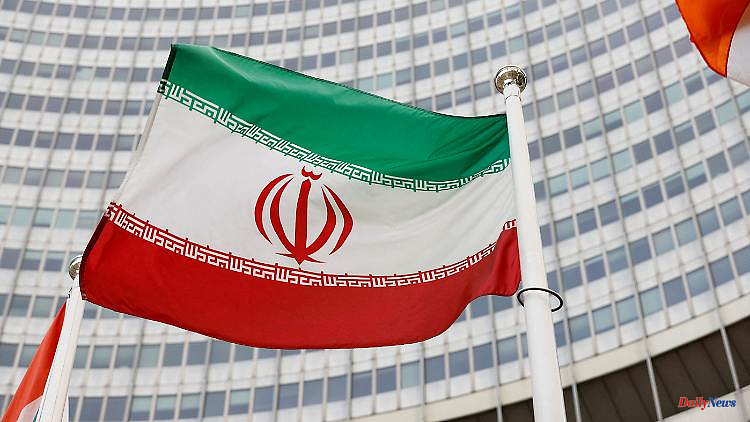As talks about reviving the international nuclear deal make little headway, Tehran announces the shutdown of several International Atomic Energy Agency (IAEA) surveillance cameras in Iran's nuclear facilities. The reason is anger about an official complaint.
The dispute over Iran's nuclear program between Western countries and the Islamic Republic is coming to a head. Iran said Wednesday it had removed two International Atomic Energy Agency (IAEA) surveillance cameras at a uranium enrichment facility. The USA immediately spoke of a very regrettable event that was counterproductive for a diplomatic solution to the conflict. The IAEA also said Iran had begun upgrading the underground facilities at Natanz for uranium enrichment with new centrifuges. The cameras were still active recently, but the stored data has not been forwarded to the IAEA since the beginning of 2021
The reason for the dispute is a lack of clarity about the origin of uranium particles that were discovered at three facilities not declared by Iran. The IAEA criticizes that Iran has not yet provided any credible explanations for these finds. In addition, a separate investigation by the IAEA found that the Iranian stockpile of uranium enriched to 60 percent had now increased to 43.1 kilograms. A purity of 90 percent is required for a nuclear weapon. A senior diplomat said Iran would need more than 55 kilograms of the 60 percent uranium for a nuclear bomb.
Because of the ambiguity, the USA, Germany, Great Britain and France have submitted a draft resolution to the IAEA Board of Governors, in which Iran is criticized for not responding. He is also asked to clarify the facts immediately. The IAEA Board of Governors adopted the resolution on Wednesday evening with a large majority. It is the first official reprimand from Iran by the IAEA in two years. Diplomats say 30 countries voted in favor of the resolution. China and Russia voted against, while Pakistan, India and Libya abstained. Israel welcomed the rebuke. This is a "first and necessary step towards the goal of restoring Iran's compliance with security obligations".
Iran has balked at the decision and has threatened retaliation. This could further undermine already stalled talks to save the 2015 nuclear deal. Indirect talks between Iran, the United States and other countries about reviving the agreement are dragging on. The United States had terminated the agreement in 2018 under its then President Donald Trump and again imposed sanctions on Iran. As a result, Iran no longer complied with all of the conditions. The nuclear deal aims to prevent Iran from building nuclear weapons. The government in Tehran denies such intentions.












